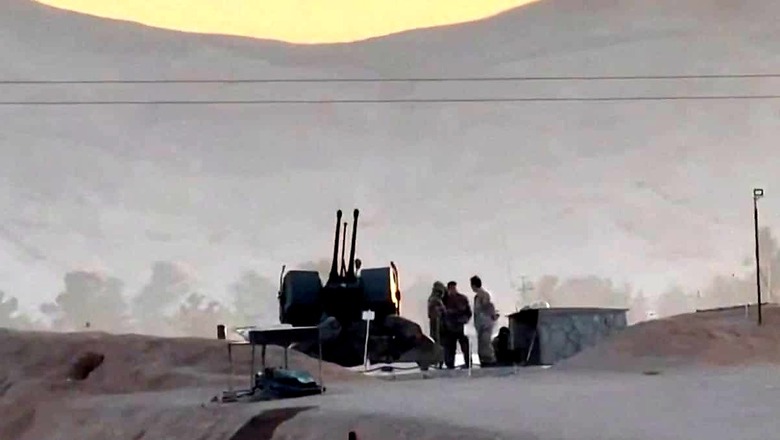
views
World leaders on Friday called for de-escalation after explosions near the Iranian city of Isfahan echoed across the globe as dozens of countries expressed fear of a full-scale war between Israel and Iran.
The limited scale of the Israeli attack and Iran’s muted response appeared to signal a successful effort by diplomats who have been working to avert all-out war since an Iranian drone and missile attack on Israel last Saturday. Iranian media and officials described a small number of explosions, which they said resulted from air defences hitting three drones over the city of Isfahan in central Iran.
Notably, they referred to the incident as an attack by “infiltrators”, rather than by Israel. A senior Iranian official told Reuters there were no plans to respond against Israel for the incident. Israel had said it would retaliate after Saturday’s strikes, the first-ever direct attack on Israel by Iran, which caused no deaths after Israel and its allies shot down hundreds of missiles and drones.
Tehran launched those attacks in response to a presumed Israeli airstrike on April 1 that destroyed a building in Iran’s embassy compound in Damascus and killed several Iranian officers including a top general.
Here are the top updates of the latest escalation in the Middle East:
- Reports of an Israeli attack on Iranian soil jolted world markets with geopolitical risks that can swiftly change the direction of anything from oil to bonds and renew inflation risks. Stocks tumbled on Friday, oil briefly jumped more than $3 a barrel and safe-haven government bonds rallied.
- Airlines changed flight paths over Iran, cancelled some flights, diverted others to alternate airports or returned planes to their departure points on Friday due to airspace and airport closures and security concerns. Iran closed its airports in Tehran, Shiraz and Isfahan after the attack and cleared flights from the western portion of its airspace for a few hours after the attack, according to flight tracking website FlightRadar24.
- “It is high time to stop the dangerous cycle of retaliation in the Middle East. I condemn any act of retaliation & appeal to the international community to work together to prevent any further development that could lead to devastating consequences for the entire region & beyond,” said UN Secretary-General António Guterres.
- G7 foreign ministers urged “all parties” to “work to prevent further escalation” in the Middle East, following reports that Israel carried out a strike on Iran. “In light of reports of strikes on April 19th, we urge all parties to work to prevent further escalation. The G7 will continue to work to this end,” the Group of Seven nations says in a statement after a meeting on the Italian island of Capri.
- The United States told the Group of Seven foreign ministers that it received “last minute” information from Israel about a drone action in Iran early this morning, Italy’s foreign minister says. Italian Foreign Minister Antonio Tajani, who chaired the meeting of ministers of industrialized countries, says the United States provided the information at session this morning that was changed at the last minute to address the suspected attack.
- US Secretary of State Antony Blinken says Washington is committed to Israel’s security, adding when asked about a reported Israeli strike on Iran that the US has not been involved in any offensive operation. “I’m not going to speak to these reported events… All I can say is for our part, and for all the members of the G7, our focus is on de-escalation,” Blinken tells reporters after the G7 gathering in Italy.
- Direct state-to-state strikes between Israel and Iran are “over,” a regional intelligence source told CNN. The source speculates that Iran won’t respond to last night’s alleged Israeli strike in Isfahan.



















Comments
0 comment